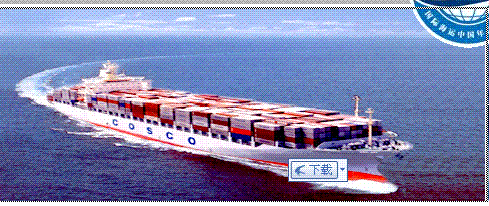
SHIPPING companies in China are slowly but surely waking up to the harmful effects of their activity on the environment.
Traditionally, Chinese firms have been more anxious to achieve success in other areas, such as safety and efficiency. But as they seek to become major players in the international arena, environmental friendliness has become a new measure of their long-term success. This was the view held by many domestic and foreign industry players who spoke to Shanghai Daily at the ShippingTech Summit, an international shipping industry conference held last week in Shanghai.
"There may be less pressure coming from the general public in China at present than there is in Europe," said John Stansfeld, director of Lloyd's Register Asia. "But shipping activities, by their nature, are conducted in a global market place, a fact that compels any carrier aspiring to be among the industry elite to embrace basic corporate social responsibilities."
Shipping players in Europe and the United States first faced similar pressures in the 1970s. Ports, container shipping firms and shipyards responded to public opinion and government incentives by switching to cleaner technology.
Today, companies in the west are often expected to account for their impact on the environment, such as their "carbon footprint," in their annual reports. "Some firms will only sign contracts with companies that can prove a reduction in carbon dioxide emissions," said John Coustas, CEO of Danaos Corporation, a leading charterer of container ships based in Europe.
One example is Eidesvik Offshore, a Norwegian shipping company, which built more expensive ships that polluted less because its customer, an oil company, insisted it would only agree to charter cleaner vessels.
To be fair, shipping only accounts for 1.8 percent of global greenhouse gas emissions, compared with the 10 percent emitted by land-based transport. This, however, is cold comfort for environmental activists, who say every bit of reduction in pollution counts.
A study by the International Council on Clean Transportation (ICCT), a United States-based non-governmental green group, in March this year pointed out that the shipping industry emitted more greenhouse gases than many industrialized nations.
"Air pollution from diesel trucks and buses in Europe, Japan, and the US has declined steadily for over a decade. At the same time, air pollution from international ships is rising virtually unchecked," said Alan Lloyd, president of ICCT.
Shipping companies can tackle the environmental problem from four angles. They can build ships with environmentally friendlier designs, use cleaner alternative fuels, decrease the speed of vessels, and reduce the risk of oil spills.
And Chinese players are beginning to realize they can't afford to neglect this aspect of their business. Some US ports used by Chinese ships require the use of low-sulfur fuels, said Huang Xiaowen, general manager of China Shipping Container Lines. And ships must reduce speed as they approach the ports, he said.
Chen Weijiong, professor at Shanghai Maritime University, said: "The government is viewing the environmental problem very seriously. And the large Chinese shipping companies such as Cosco and China Shipping are also doing a lot to control the problem."
In 2005 and 2006, Cosco Container Lines, for example, was awarded the Green Flag environmental award by the Port of Long Beach in the US for achieving high compliance with the port's voluntary environmental scheme.
In 2003, the firm introduced a system to monitor and control the environmental impact of its ships, said Sun Jiakang, general manager of Cosco Container Lines.
However, problems still persist, and Chinese firms continue to lag behind their western counterparts on green issues. Chen said smaller Chinese shipping firms were sometimes unable to improve their environmental record because "vicious competition" between firms on some routes was resulting in very thin profits. Firms need to make money before they can answer the government's call to act, said Chen.
Another problem is the lack of technology among Chinese firms to carry out green reforms. Huang noted that "China holds little of the intellectual property rights to technology" that could lessen shipping pollution. This means a costlier battle for Chinese firms as they have to buy the technology from companies overseas.
Marianne Lie, director general of the Norwegian Shipowners' Association, said sharing technology was one way Norwegian firms could help Chinese firms solve this problem.
But Qian Yongchang, chairman of the China Communication and Transportation Association, thinks that there is "lack of consciousness" of the seriousness of the environmental problem.
"We sometimes pay lip service to environmental protection, but the implementation is often casual. We should learn from our European counterparts in this area."
Chinese shipping firms, he observed, were often more concerned with achieving high efficiency, economies of scale and high returns.
This is where the International Maritime Organization, a global regulator of the shipping industry, comes in. By setting international standards, and making firms abide by those standards, environmental protection will be much more efficient, Lie points out.